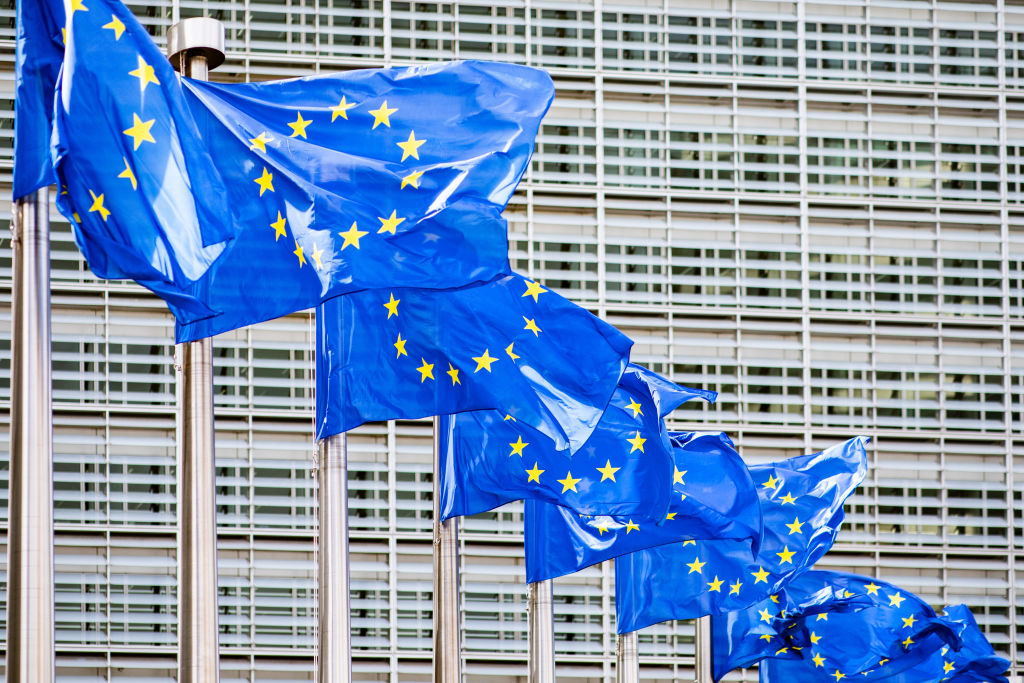
The annual "State of European Tech" report from venture capital firm Atomico, typically a barometer of investment trends and ecosystem health, has taken on a new dimension this year, evolving into a potent advocacy document. This transformation signals a profound shift within the continent’s burgeoning technology landscape: European startups and their investors are increasingly engaging in sophisticated lobbying efforts, recognizing that their future growth is inextricably linked to policy decisions emanating from Brussels and national capitals.
The Growing Voice of European Tech
For years, Europe’s technology sector has been characterized by its innovative spirit but often overshadowed by its American and Asian counterparts in terms of scale and market capitalization. While individual nations fostered vibrant startup scenes, the continent as a whole struggled with market fragmentation, regulatory hurdles, and a perceived lack of risk capital. Atomico’s latest report, however, highlights a continued upward trajectory in investment, demonstrating the sector’s resilience and growing maturity. The deeper significance of this edition lies not just in its data, but in its explicit call to action, reflecting a consensus that mere organic growth is insufficient without a supportive policy framework.
Tom Wehmeier, a partner at Atomico and the firm’s head of intelligence, articulated this new imperative, stating, "It’s no longer enough to show how far we’ve come. It’s critical, too, that we use those insights to point the way forward." This forward-looking perspective underpins the report’s four core policy recommendations: "Fix the friction," "Fund the future," "Empower talent," and "Champion risk." These pillars are designed to address systemic issues hindering European tech’s global competitiveness.
Atomico, established in 2006 by Skype co-founder Niklas Zennström, possesses significant credibility within the European tech ecosystem. Its robust portfolio features high-profile European companies such as Aiven, DeepL, Klarna, Pipedrive, Stripe, and Supercell, granting it an authoritative voice that extends beyond its own interests. The firm’s proactive stance mirrors a broader trend where European tech companies, learning from the established lobbying practices of "Big Tech," legacy industries, and their well-resourced U.S. peers, are now investing in dedicated public affairs teams and forming collective advocacy groups. This strategic pivot reflects a maturation of the sector, acknowledging that policy engagement is as crucial as product innovation and market penetration.
Historically, Europe has often been a leader in regulatory frameworks, exemplified by the General Data Protection Regulation (GDPR) and more recently, the Digital Markets Act (DMA) and the Artificial Intelligence Act. While these regulations aim to protect citizens and foster fair competition, they have also been criticized by some within the tech community for potentially stifling innovation and creating complex compliance burdens for nascent companies. This backdrop has fueled the current wave of advocacy, as the industry seeks to proactively shape future legislation rather than merely reacting to it.
Key Policy Pillars for Growth
The four policy recommendations outlined by Atomico are not arbitrary; they resonate deeply with long-standing concerns within the European tech community and the policy circles of Brussels. "Fix the friction" primarily addresses the bureaucratic and legal complexities faced by companies operating across 27 distinct national jurisdictions. This includes streamlining regulatory processes, harmonizing legal frameworks, and creating a more unified digital single market. The current fragmented landscape imposes significant overheads, particularly for startups attempting to scale internationally within the EU.
"Fund the future" highlights the persistent challenge of capital availability, particularly for later-stage funding rounds. While early-stage investment has seen growth, European companies often find themselves seeking larger funding rounds from U.S. or Asian investors, potentially leading to a loss of strategic control or even relocation. This recommendation advocates for policies that encourage greater institutional investment in venture capital, foster a more robust ecosystem of pension funds and sovereign wealth funds investing in tech, and potentially incentivize private capital formation.
"Empower talent" focuses on addressing the skills gap and attracting and retaining top talent within Europe. This encompasses initiatives related to education, vocational training, simplified visa processes for skilled workers from outside the EU, and creating an attractive environment for entrepreneurs and engineers. A thriving tech sector requires a deep talent pool, and Europe faces stiff competition from other global innovation hubs.
Finally, "Champion risk" seeks to cultivate a culture that embraces entrepreneurial risk-taking, moving away from perceived risk aversion in certain parts of Europe. This involves reviewing bankruptcy laws, promoting startup-friendly legal frameworks, and celebrating entrepreneurial success to inspire new generations of founders. It also touches upon encouraging public procurement of innovative solutions from startups, providing early market validation and growth opportunities.
These recommendations align closely with broader economic competitiveness debates in Europe, echoing sentiments found in reports such as former European Central Bank President Mario Draghi’s 2024 assessment on European competitiveness. Draghi’s report underscored the urgency for Europe to enhance its productivity, innovation, and strategic autonomy in critical sectors, including technology. The tech industry’s advocacy, therefore, is not an isolated plea but a concerted effort to contribute to a larger European economic agenda.
Navigating Europe’s Fragmented Landscape: The "28th Regime"
One of the most pressing issues for European tech, explicitly championed by advocacy groups like EU-INC and strongly supported by Atomico, is the establishment of a pan-European company structure, often referred to as the "28th regime." Currently, companies must navigate 27 different national legal and administrative regimes, a significant impediment to seamless cross-border operations, talent acquisition, and fundraising. A unified company structure would dramatically simplify operations, reduce administrative burdens, and create a more attractive environment for both founders and investors.
The nuances of this policy are critical, as Atomico meticulously points out. The firm warns that the legal form this "28th regime" takes—whether a "regulation" or a "directive"—is paramount. In the European Union legal framework, a regulation is directly binding and applicable across all member states without needing national transposition. This ensures uniformity. A directive, conversely, sets out a goal that member states must achieve, but allows each country to devise its own laws to reach that goal, often leading to varied interpretations and implementation.
Atomico argues that a directive would effectively perpetuate the status quo of disparate rules, failing to deliver the uniformity that tech companies need to scale efficiently. Only a regulation, with its direct applicability and binding nature, would provide the "teeth" necessary to genuinely fix the friction across borders. This level of detail in policy engagement demonstrates the increasing sophistication of European tech lobbying, moving beyond general appeals to specific, technically informed demands.
Other organizations, such as France Digitale, a prominent French startup and investor association, have also contributed detailed analyses like their "non-paper" on the 28th regime. Similarly, publications from the Europe Startup Nations Alliance (ESNA) support the EU startup and scaleup agenda. What distinguishes Atomico’s approach, however, is its multi-channel dissemination strategy, packaging its findings not only as a comprehensive report but also as an engaging video and a prominent stage talk at major tech conferences like Slush. This ensures its message reaches both the tech ecosystem and the policymakers who hold the levers of change.
The highest echelons of European politics are taking notice. For the first time, Atomico’s 2025 report features a direct quote from European Commission President Ursula von der Leyen, expressing her desire for "the future of AI to be made in Europe." This high-level endorsement underscores the strategic importance policymakers now attach to the tech sector and validates the industry’s lobbying efforts.
Bridging the Perception Gap: Tech and Public Trust
Despite the growing political engagement, the European tech sector faces a significant challenge in winning broader public support. As some commentators observe, many of the industry’s advocacy points, such as the need for more homegrown "trillion-dollar companies," may seem abstract or even out of touch to the average European citizen. While the economic benefits of robust growth—such as job creation, innovation, and societal advancement—are undeniable, the direct link between these benefits and specific policy recommendations might not always be clear to the general public.
This perception gap is compounded by a deep-seated public distrust of the tech industry in Europe, as highlighted by Alexandru Voica, head of corporate affairs and policy at London-based AI unicorn Synthesia. Voica noted that "Communications and policy are more important than 10 years ago because in Europe, there’s a deep distrust of the tech industry." He elaborated that a decade ago, communications often served marketing and brand awareness, but "Today, the work we do is much more focused on risk mitigation and reputation management."
This distrust stems from various factors, including concerns over data privacy, the market dominance of large tech companies, the impact of automation on employment, and ethical considerations surrounding emerging technologies like artificial intelligence. To effectively advocate for its agenda, the European tech industry must not only engage with policymakers but also proactively build bridges with the public, demonstrating its commitment to ethical innovation, job creation, and societal benefit. This involves transparent communication, community engagement, and showcasing how technological advancements contribute to a better quality of life for all Europeans.
The Path Forward: Opportunities and Challenges
The European tech sector’s pivot towards sophisticated political engagement marks a critical juncture. On one hand, it represents a mature understanding that economic growth and innovation do not happen in a vacuum, but are shaped by regulatory environments and public policy. By actively participating in policy discourse, the industry can help craft legislation that fosters rather than hinders its development, ensuring Europe remains competitive on the global stage. The ambition to make "the future of AI in Europe," for example, necessitates a concerted effort that combines private sector innovation with supportive government policies, including significant investment in research and development, talent cultivation, and ethical frameworks.
However, this lobbying push is not without its risks. If the movement becomes too closely intertwined with specific political factions or is perceived as serving narrow corporate interests at the expense of broader societal welfare, it could trigger a backlash. Such a scenario might undermine the very support it seeks to cultivate, both among policymakers and the general public. Maintaining a neutral, objective stance, focused on the collective economic prosperity and innovation of the continent, will be crucial for sustained success.
In essence, Europe’s tech industry stands at a crossroads. The choice is between continuing on a path of fragmented, reactive development, or embracing a proactive, unified approach that leverages political engagement to unlock its full potential. The increasing sophistication of advocacy efforts, spearheaded by influential entities like Atomico, suggests a clear preference for the latter. The coming years will reveal whether this strategic shift can effectively bridge the gaps between innovation, policy, and public perception, ultimately positioning Europe as a true global leader in the technological revolution.








